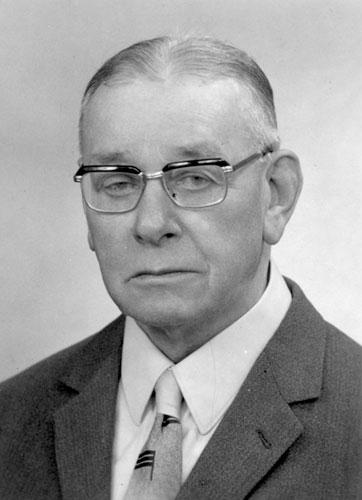

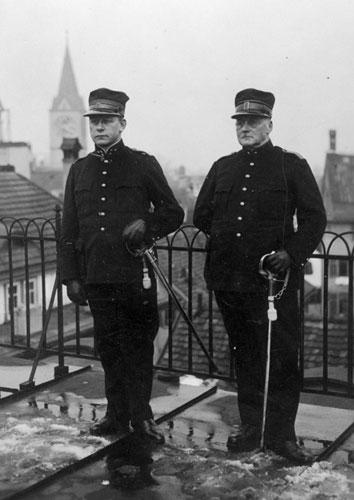

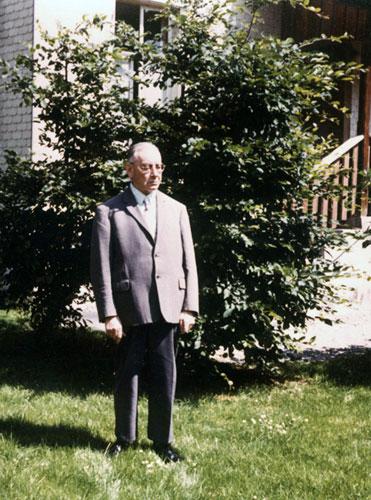

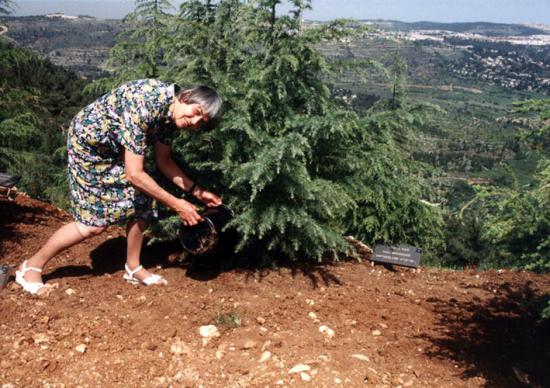

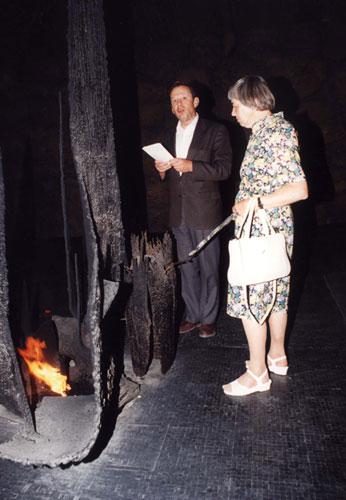

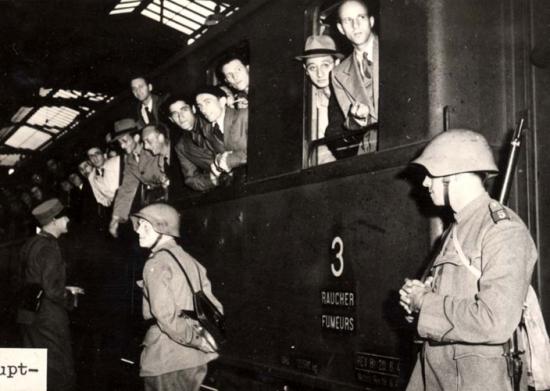

The Policeman who Lifted the Border Barrier
Paul Grueninger was the Swiss border police commander of the St. Gallen region that borders with Austria. Following the annexation of Austria to Germany, Switzerland had closed its border to those arriving without proper entry permits, and in October 1938 negotiations between Switzerland and Nazi Germany led to the stamping of the famous “J” in German passports issued to Jews. As the situation of the Jews in Austria worsened and the number of refugees who tried to illegally enter Switzerland increased, the 47-year-old official was faced with a monumental moral dilemma: turning the refugees back to their country where violent antisemitism was the official state policy, or facing the consequences of breaching the explicit instructions of his government and suffering the consequences.
Grueninger decided to disregard the official instructions and to let the desperate refugees enter Switzerland. Moreover, in order to legalize the refugees' status, he falsified their registration, so that their passports showed that they had arrived in Switzerland before March 1938, when entry into the country had been restricted.
This fabrication of dates enabled the arrivals to be treated as legals – to be taken to the Diepoldsau camp, where, aided by the Jewish organizations, the refugees awaited their permits for temporary stay in Switzerland or their departure to a final destination. Grueninger, the policeman who decided to break the law, turned in false reports about the number of arrivals and the status of the refugees in his district, and impeded efforts to trace refugees who were known to have entered Switzerland illegally. He even paid with his own money to buy winter clothes for needy refugees who had been forced to leave all their belongings behind.
The Germans informed the Swiss authorities of Grueninger's exploits, and he was dismissed from the police force in March 1939. His benefits were suspended, and he was brought to trial on charges of illegally permitting the entry of 3,600 Jews into Switzerland and falsifying their registration papers. The prosecution added additional charges of helping individual Jews by shielding them from detection, assisting them in depositing their valuables, etc.
Grueninger's trial opened in January 1939 and dragged over two years. In March 1941 the court found him guilty of breach of duty. His retirement benefits were forfeited, and he was fined and had to pay the trial costs. The court recognized his altruistic motivations, but found that nevertheless, as a state employee, it was his duty to follow his instructions.
Ostracized and forgotten, Grueninger lived for the rest of his life in difficult circumstances. Despite the difficulties, he never regretted his action on behalf of the Jews. In 1954 he explained his motives: "It was basically a question of saving human lives threatened with death. How could I then seriously consider bureaucratic schemes and calculations."
In December 1970 as a result of protest in the media, the Swiss government sent Grueninger a somewhat reserved letter of apology, but refrained from reopening his case and reinstating his pension. Only after his death were steps to rehabilitate him set into motion. The first attempt was rejected by the Swiss Council, and only as late as 1995, the Swiss federal Government finally annulled Grueninger's conviction.
On April 20, 1971, Yad Vashem recognized Paul Grueninger as Righteous Among the Nations. In 1972 Paul Grueninger passed away.






